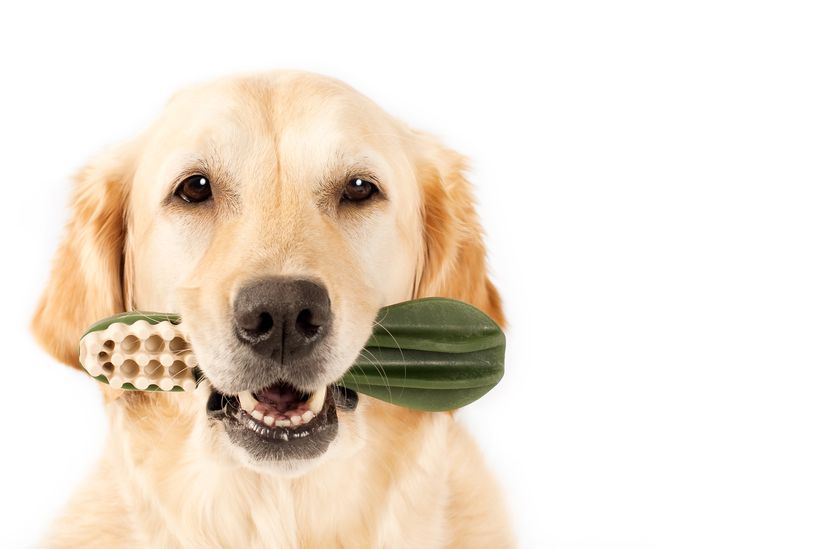Sweet Muggin'
Like humans, dogs can develop plaque and tartar on their teeth, which can lead to a host of dental issues: gum disease, tooth decay, and even tooth loss. If left untreated, these problems can spread to other areas of the body, resulting in more severe health problems and hefty vet bills (a professional teeth cleaning will cost you anywhere from $300 to $700). That's why proper dental care at home is so important. Brushing your dog's teeth, adding dental solution to their water, and providing chew toys can help prevent these issues and improve the overall health and wellbeing of your pooch, all while helping you save money in the long run.
Related: 13 Free Perks of Owning a Dog
















